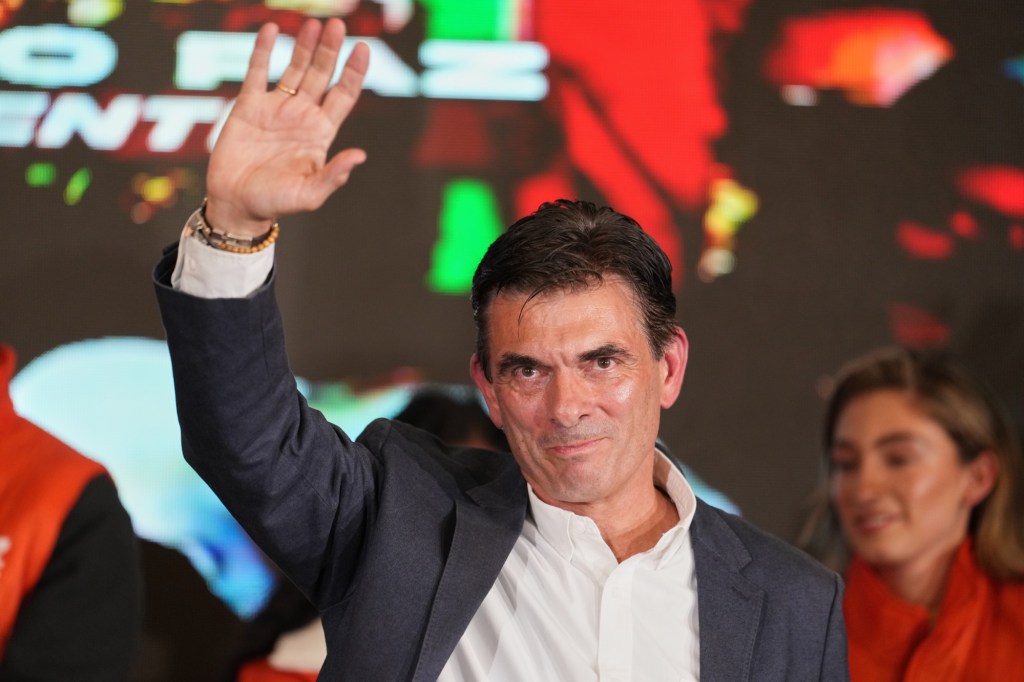
Rodrigo Paz, a senator in Bolivia’s Christian Democratic Party who offers “capitalism for all” and a transition away from almost 20 years of authoritarian populism under the MAS party, recently won the presidental run-off election. Paz will take office in November. He defeated Jorge Quiroga, the free-market candidate who proposed an even more radical overhaul of the system.
For the last two decades, Bolivia has been dominated by two allies of Venezuela and Cuba: Evo Morales and Luis Arce. Given Venezuela’s crisis, the prospects of a defeat by Honduras’s pro-government candidate next month, and the unpopularity of Gustavo Petro in Colombia, where elections will take place next year, Bolivia’s result underlines the hemisphere’s weariness with 21st-century socialism.
Bolivia is a case study in populist failure. After the commodities boom during this century’s first 15 years, gas production dropped by half. The fiscal deficit, the result of populist spending commitments made when money was pouring in, is now almost 11 percent of GDP. Central bank reserves have gone from US$14 billion to US$2 billion, while the government has desperately tried to keep the currency pegged to the dollar. (Dollars are nowhere to be found at the official rate; they can only be bought for twice that price in the black market.)
Reversing that legacy will be a titanic affair. Bolivia’s government spends more than US$2 billion on fuel subsidies. Lifting them or reducing them would give Morales and Arce, who say they will make life miserable for the next government, a cause for rallying the troops. This is so even though Morales has been hiding in the coca-producing Chapare region to evade arrest. He is accused of the statutory rape of a 15-year-old girl. Arce is massively unpopular. The left, including MAS and Morales’s heirs, will have a mere 10 seats in the new Congress—out of 166. Paz’s new administration should be able to build a working majority with the various anti-MAS parties, but the radical left can still cause chaos.
Morales and the MAS rose to power in 2006. They inherited significant gas reserves situated next to Argentina and Brazil, state-of-the art pipelines through which to export it to those countries, and long-term contracts with them. Thanks to the commodities boom, Bolivia’s gas prices went from a little over US$2 per million BTUs at the turn of the century to six times that number. For about 10 years the populist government was able to keep the mirage going, stealing and spending money as if there were no tomorrow. (The budget increased by a factor of 11 in the first decade of the MAS era.)
No investments were made for the future, and the country’s reserves did not expand. By 2014,production began to drop. The government responded by taking foreign reserves out of the central bank. Gas production fell dramatically and, gradually, so did the number of dollars available to import fuel and other key items.
As populist governments do, the authorities began to print money. They have printed astronomical amounts for a country with a relatively small economy—the equivalent of US$26 billion. The result? Inflation stands at about 23 percent annually. Investment has long disappeared, which explains why negative economic growth is expected for the next couple of years.
Bolivia’s commodity resources are enormous. It owns 15 percent of the world’s lithium reserves. It should be benefitting from the current prices of various natural resources, including tin (US$15 a pound) and silver (US$44 an ounce). Instead, 20 years of demagogy have prevented Bolivians from building on their natural wealth. As Quiroga likes to say, Paraguay, a country that a few years ago was taking lessons from Bolivia about exploiting its agricultural potential, now exports four times more soy than its neighbor and 10 times more meat. No wonder the popularity of the once all-powerful MAS has been reduced to ashes.
Paz will face major headwinds, but if the anti-MAS forces stick together, he will have an opportunity to put the fiscal and monetary houses in order, lift barriers to commerce and investment, deregulate the legal environment, and rebuild liberal democracy.
Alvaro Vargas Llosa is a senior fellow of the Independent Institute in Oakland, Calif. His latest book is “Global Crossings: Immigration, Civilization and America.”



